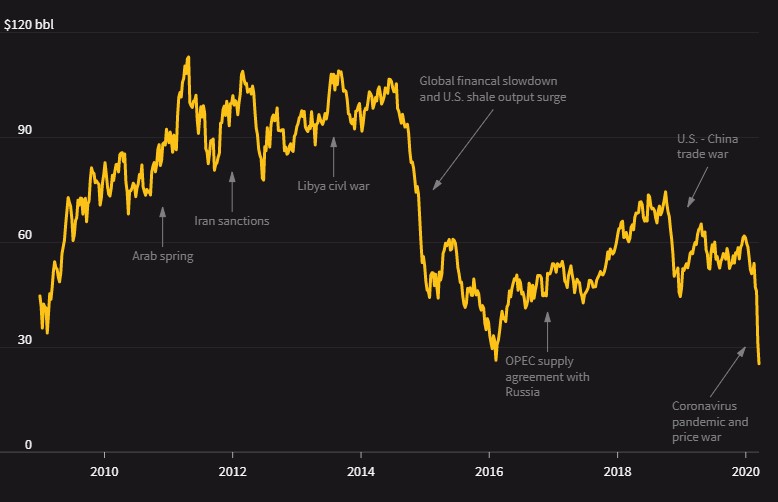The price of Brent crude oil holds significant influence over global financial markets. As one of the primary benchmarks for oil prices worldwide, Brent crude plays a crucial role in shaping economic conditions, financial markets, and national policies. Understanding how shifts in Brent crude prices affect the broader economy provides valuable insights for investors, governments, and businesses. In this post, we examine the impact of Brent crude prices on global financial markets, using FintechZoom’s insights to highlight key factors that drive these dynamics.
Brent Crude FintechZoom An Overview of Brent Crude Oil

Brent crude oil is a specific type of crude oil originating from the North Sea, and it is widely regarded as one of the main global price benchmarks for oil. The significance of Brent crude in global markets stems from its quality, low sulfur content, and favorable production location, making it easier and more efficient to refine. FintechZoom’s insights on Brent crude illustrate how its price movements serve as a reliable indicator of global economic health, influencing everything from inflation to stock market trends.
Role of Brent Crude as a Benchmark
Brent crude is traded on major global exchanges and is a widely referenced benchmark in oil contracts worldwide. FintechZoom emphasizes the importance of Brent crude’s role as a price setter in the oil industry. Its price movements are closely monitored by traders, policymakers, and corporations alike. Because Brent crude is priced in U.S. dollars, fluctuations in the dollar’s value can also impact its price, adding another layer of complexity for market observers.
Comparison with Other Oil Benchmarks
Brent crude is often compared to other benchmarks, such as West Texas Intermediate (WTI), which is primarily used in the United States. While WTI and Brent crude prices often move in tandem, regional factors and differences in quality and production conditions can lead to price discrepancies. FintechZoom highlights that, despite these differences, Brent crude remains a preferred indicator of global oil prices due to its international reach and production levels.
Impact of Brent Crude Prices on Stock Markets
Fluctuations in Brent crude prices directly impact the stock markets, particularly in sectors closely related to energy. FintechZoom explores how rising and falling Brent crude prices influence stock performance across various industries, with effects often extending to broader market indices.
Influence on the Energy Sector
The energy sector is the most immediate area affected by changes in Brent crude prices. Companies involved in oil exploration, production, and refining experience significant shifts in profitability in response to crude price movements. When Brent crude prices rise, energy companies generally see higher profit margins, which can drive up stock prices in this sector. Conversely, when prices decline, profitability decreases, often leading to lower stock valuations. FintechZoom notes that oil majors, such as ExxonMobil and BP, are particularly sensitive to Brent crude fluctuations, as these changes impact their bottom line and investor sentiment.
Effects on Other Industries
Beyond the energy sector, Brent crude prices impact industries that rely heavily on oil for production and transportation. For example, airlines, shipping, and logistics companies face higher operational costs when oil prices rise, which can negatively affect their stock prices. FintechZoom points out that consumer goods companies are also affected, as higher oil prices lead to increased production and transportation costs, potentially reducing profitability. Additionally, sectors like manufacturing and chemicals, which use oil as a raw material, may experience changes in input costs that affect their profit margins and, subsequently, their stock performance.
Brent Crude and Inflationary Pressures
Brent crude prices play a critical role in influencing inflation rates, both directly and indirectly. As oil is a foundational input for many goods and services, fluctuations in its price can drive broad inflationary trends that impact the purchasing power of consumers and businesses alike.
Direct Impact on Fuel and Transportation Costs
The most immediate effect of higher Brent crude prices is seen in fuel costs. When crude prices increase, gasoline and diesel prices follow suit, raising transportation costs across industries. FintechZoom highlights that these rising costs are often passed on to consumers, leading to higher prices for goods and services. The resulting increase in overall transportation expenses can create inflationary pressures that are felt across the economy, from groceries to retail products.
Broader Effects on Consumer Prices
Beyond fuel, Brent crude prices also affect the costs of various consumer products, especially those with significant energy and transportation inputs. For instance, plastic products, food items, and household goods are all influenced by changes in oil prices. FintechZoom notes that as companies pass these increased costs on to consumers, the ripple effects contribute to overall inflation. This can lead central banks to adjust monetary policies, such as raising interest rates, to curb inflation, which in turn affects the borrowing and spending power of both individuals and corporations.
The Role of Brent Crude Prices in Currency Markets

Currency markets are highly sensitive to changes in Brent crude prices, especially for countries that are either major oil exporters or importers. FintechZoom provides valuable insights into how Brent crude prices influence currency values, impacting both emerging and developed economies.
Impact on Oil-Exporting Nations
Countries that are heavily reliant on oil exports, such as Russia, Saudi Arabia, and Nigeria, experience substantial currency fluctuations in response to Brent crude price movements. When oil prices are high, these countries see an increase in revenue, which can strengthen their national currencies. FintechZoom highlights that a stronger currency benefits oil-exporting nations by increasing purchasing power and supporting economic growth. Conversely, when Brent crude prices fall, these economies often face weakened currencies and budgetary constraints, which can lead to economic challenges and market instability.
Effects on Oil-Importing Economies
Oil-importing countries, particularly in Asia and Europe, are also impacted by Brent crude price changes. Higher oil prices lead to increased import costs, which can create trade deficits and weaken the national currency. For instance, Japan and India, both significant oil importers, face inflationary pressures and weakened currencies when Brent crude prices surge. FintechZoom notes that for these economies, maintaining currency stability and controlling inflation during periods of high oil prices becomes a key focus for policymakers.
Brent Crude Prices and Interest Rates
The relationship between Brent crude prices and interest rates is a crucial factor for investors and policymakers alike. Rising oil prices can lead to inflationary pressures, prompting central banks to adjust interest rates, which in turn affects borrowing costs and investment returns across markets.
Central Bank Responses to Rising Oil Prices
When Brent crude prices increase and drive inflation, central banks may implement interest rate hikes to manage inflationary pressures. FintechZoom explains that these higher interest rates can dampen economic activity by making borrowing more expensive for businesses and consumers. This response often impacts financial markets, as higher interest rates can lead to decreased corporate profits and lower stock valuations. Investors should be mindful of these shifts, as central bank policies in response to Brent crude prices can influence the broader economic landscape.
Effects on Bond Markets and Yields
In addition to influencing stock markets, rising interest rates due to high Brent crude prices can impact bond markets. When central banks raise interest rates, bond yields generally increase, leading to lower bond prices. FintechZoom notes that investors in fixed-income assets may face reduced returns as bond prices fall. The impact on bond markets is significant for investors seeking stable returns, as it influences their portfolio allocation and risk tolerance.
Navigating the Impact of Brent Crude Prices

Brent crude prices have far-reaching implications for global financial markets, influencing sectors from energy to consumer goods, and affecting inflation, currency values, and interest rates. FintechZoom’s insights on Brent crude prices provide a deeper understanding of how these fluctuations impact economies and markets worldwide. For investors, understanding the intricate effects of Brent crude price changes can aid in making informed decisions, as oil price trends often signal broader economic shifts. Whether through stock market exposure, currency investments, or fixed-income assets, monitoring Brent crude prices remains essential for navigating today’s complex financial landscape.

